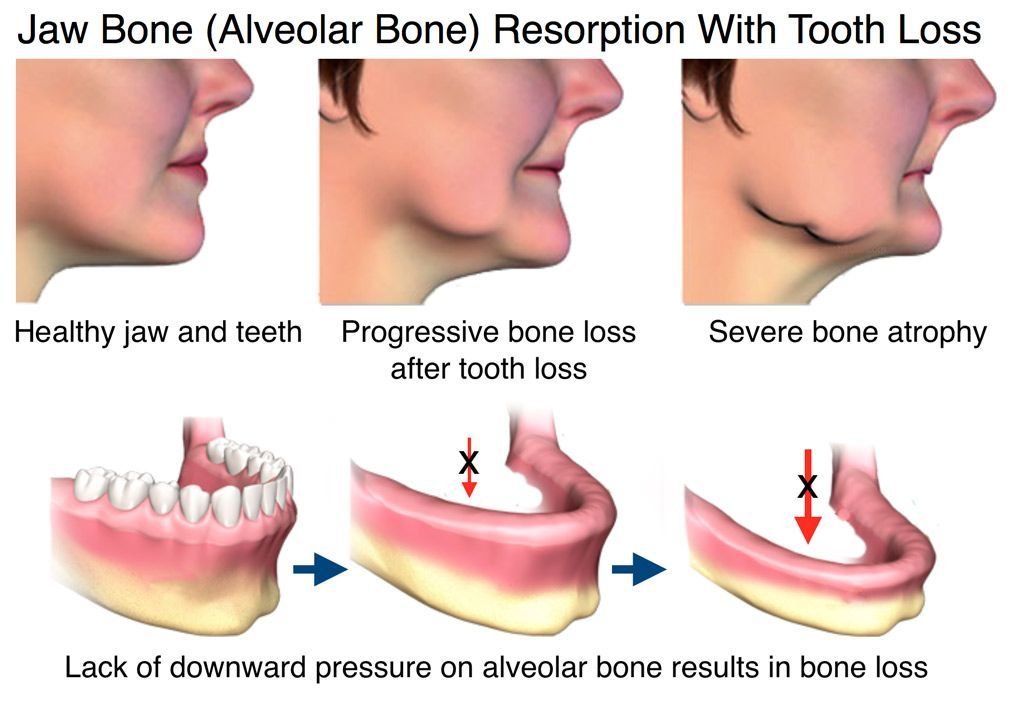
One of the most significant consequences of missing teeth is the breakdown of healthy bone tissue in the jaw. The more teeth that are missing, the more degeneration will occur in the jaw. This is because the lack of downward pressure on the jawbone results in bone loss. Dentures can accelerate bone loss by wearing away at the bone they are placed on. Every time you bite down, you are placing pressure on the ridge, resulting in the break down of tissue in the bone. This is a primary cause of continual problems on getting dentures to fit, of sore spots and difficult or painful chewing.
The jawbone is necessary for the stabilization of teeth as well as support for the whole facial structure. Whether a single tooth is lost, a few teeth, or there are no natural teeth remaining in the mouth, bone loss will occur. When considering dental implants as a form of tooth replacement, it is necessary to evaluate the condition of bone tissue in order to ensure the longevity of the results.
Bone loss can be prevented by placing a replacement tooth with a root in the jawbone that can apply similar pressure as natural teeth. We highly recommend placing an implant immediately after extraction to maintain the jaw bone structure. The successful placement of SF dental implants is dependent on the amount and quality of the jawbone. With sufficient bone to support them, dental implants can provide the same functionality as natural teeth. Results of fully stabilized implants can last a lifetime.
If you were told that you are not a candidate for dental implants due to insufficient bone structure, we may be able to help. Call Center for Implant Dentistry at (510) 574-0496 to schedule an appointment with one of our experienced implant surgeons.